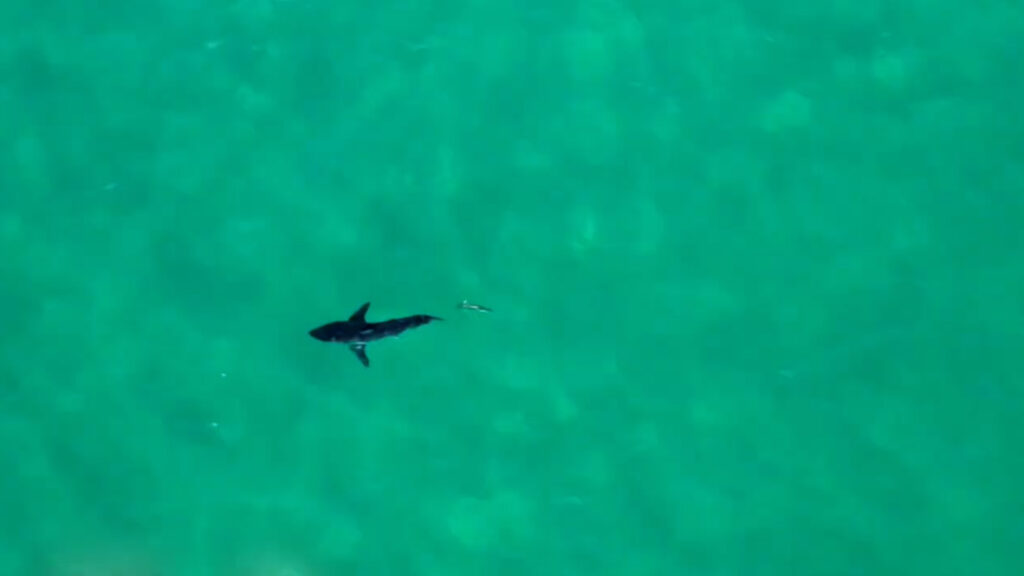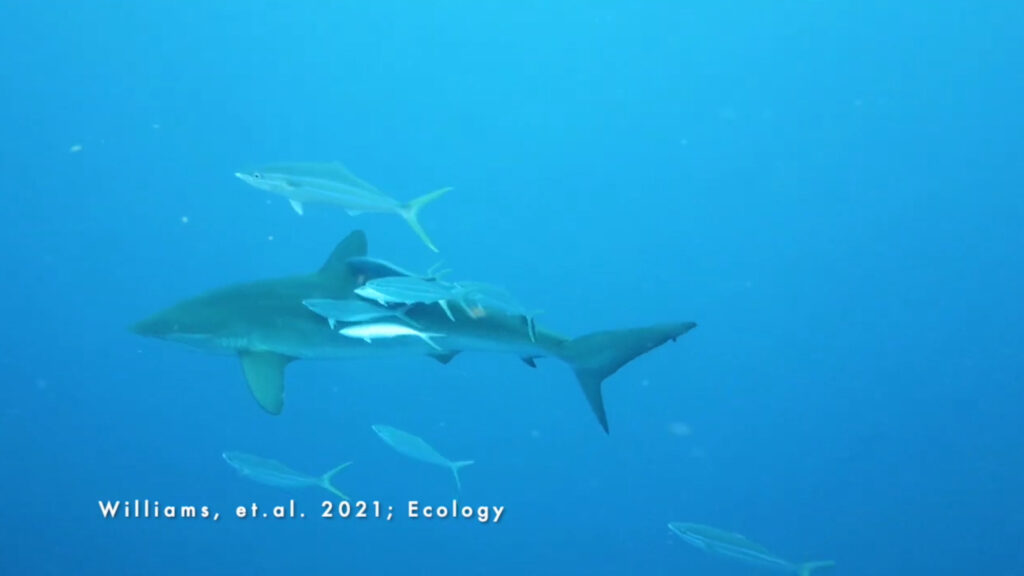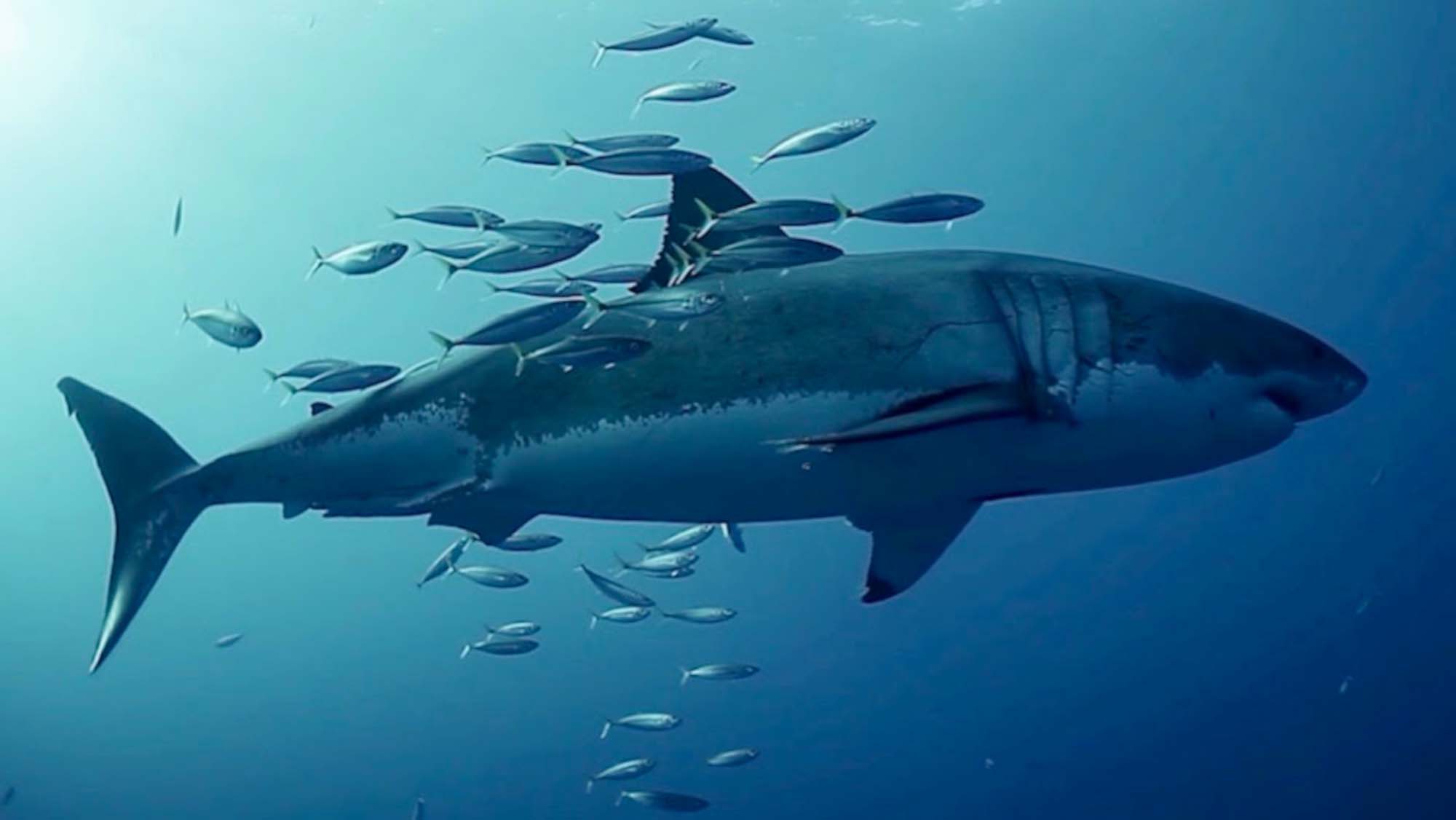These small fish rub against great white sharks and a new study argues that it could be so they can exfoliate their skin and remove parasites.
A team of researchers led by the University of Miami (UM) Shark Research and Conservation Program at the Rosenstiel School of Marine and Atmospheric Science discovered that the risky behaviour exhibited by the fish could play a significant ecological role.
According to a statement released by UM on Wednesday, 3rd November: “Instances of fish chaffing against sharks has previously been observed, this study finds this cross-species behavior to be more pervasive than previously understood.”
The researchers used underwater photos, videos and drone footage to study 47 examples of fish rubbing against sharks.
The ‘chaffing events’ were documented at 13 different locations all across the world and varied in length from just eight seconds all the way to five minutes. Sometimes it would be just one fish chaffing against one shark but at times shoals of over 100 would be bumping against several sharks.
One case that stood out to the team was recorded by a drone in Plettenberg Bay, South Africa, and showed 25 occurrences of a leervis fish rubbing against an enormous great white shark.
The researchers also noted that silky sharks (a species that does not have rough skin) chafe against whale sharks.
Lacey Williams, a UM Rosenstiel School graduate student who co-led the study, said: “While chafing has been well documented between fish and inanimate objects, such as sand or rocky substrate, this shark-chaffing phenomenon appears to be the only scenario in nature where prey actively seek out and rubs up against a predator.”

(University of Miami (UM) Shark Research and Conservation Program at the Rosenstiel School of Marine and Atmospheric Science/Newsflash)
Neil Hammerschlag, UM Rosenstiel School research associate professor and study co-author, said: “While we don’t exactly know why it’s happening, we have a few theories. Shark skin is covered in small tooth-like scales called dermal denticles, which provide a rough sandpaper surface for the chafing fish.
“We suspect that chafing against shark skin might play a vital role in the removal of parasites or other skin irritants, thus improving fish health and fitness.”
The researchers hope that future studies will be able to further develop the theory of why fish seek out and rub against their natural predators.
The study was published online under the title ‘Sharks as exfoliators: widespread chafing between marine organisms suggests an unexplored ecological role’ in the journal Ecology, The Scientific Naturalist on 28th October.

(University of Miami (UM) Shark Research and Conservation Program at the Rosenstiel School of Marine and Atmospheric Science/Newsflash)
To find out more about the author, editor or agency that supplied this story – please click below.
Story By: Peter Barker, Sub-Editor: Joseph Golder, Agency: Newsflash
The Ananova page is created by and dedicated to professional, independent freelance journalists. It is a place for us to showcase our work. When our news is sold to our media partners, we will include the link here.




